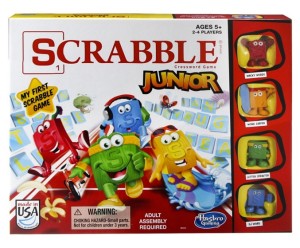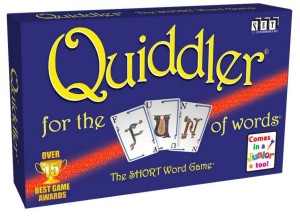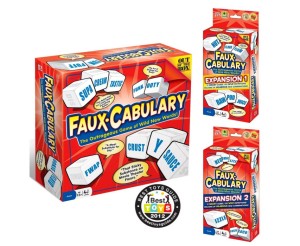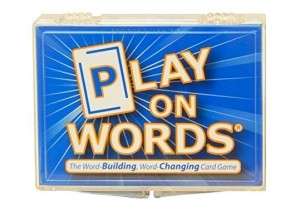Scrabble Junior; Ages 5 and up
In this child-friendly version of the long-time board game favorite, Scrabble, the board has two sides. On the first are words for young players to match their tiles to. On the flip side is a blank grid where players can build words and then build on the words of other players. (For extra credit: did you know the original Scrabble game was invented by an out-of-work New York architect during the Great Depression? Read more about Scrabble and the man who invented it, here: http://content.time.com/time/arts/article/0,8599,1867007,00.html)
Syl lab if ic a tion; Ages 8-12
Tiles in this game contain base words, prefixes and suffixes. Children learn that larger words can be broken down into smaller words and smaller words can be augmented to make bigger words. Syllabification helps foster decoding and helps children expand their vocabularies along the way.
The game is available for sale through IMSE’s Classroom Supplies, here: https://orton-gillingham.com/products/861/
Over eight rounds, each player gets an increasing amount of cards with a letter on it. The object is to make as many words as possible with your hand. The game works for a variety of ages and skill levels, as you can make a word as small as ‘at’ or ‘the’ or try to make a more elaborate word like…well, ‘elaborate.’ Quiddler also comes in a Junior edition, here: http://tinyurl.com/h2gz62o
After a word definition is read to the group, players use word dice to create new weird and wacky words! Everything from ‘uber-funk-meister’ to ‘babe-o-matic.’ The newly created word that most closely fits the definition wins. http://tinyurl.com/jrlghuj
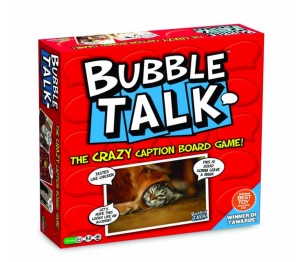 Bubble Talk; Ages 8 and up
Bubble Talk; Ages 8 and up
In Bubble Talk, players draw several ‘bubbles’ or captions. Everyone is shown a picture and each player must quickly select the best caption they have to fit the picture—or to have fun with it. The judge selects the winner, usually the funniest captions win the day. With 1500 picture cards, small groups can play several rounds before hitting a repeat. http://tinyurl.com/hcljuzw
In this play anywhere card game, players build words from 8 card stacks. Wild, combo and flip cards keep things interesting in terms of gathering enough letters to make words. Because all the cards are face up, the game encourages discussion about what makes a word, why words are spelled the way they are and helps youngsters improve their encoding and decoding skills. http://www.playonwordsgame.net/
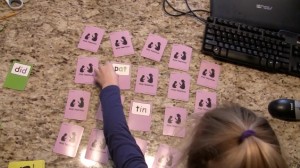 Play Together Read Together; Ages 4-7
Play Together Read Together; Ages 4-7
Developed by teacher and parent, Melissa Young, this matching card game reinforces vowel and consonant sounds and helps children work on their sight reading. Players draw from a main stack and then work to match words with similar constructions from a facedown set of cards. Each card set has an accompanying book that parents and children can read along to augment the games. http://www.playtogetherreadtogether.com/

